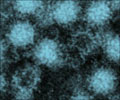
Researchers collected stool samples from 430 Finns before and after they travelled outside of Scandinavia. The goal was to determine if a resistant type of bacteria from the Enterobacteriaceae family colonized their guts. It produces resistance to many antibiotics by producing a key enzyme, extended-spectrum beta-lactamase (ESBL).
The U.S. Centers for Disease Control and Prevention has called ESBL-producing bacteria a serious concern and a significant threat to public health.
21 percent of the travelers to tropical and subtropical areas in the study had unknowingly contracted ESBL-producing bacteria during their trips.
Significant risk factors for colonization were travelers' diarrhea and treating it with antibiotics while abroad. Southeast Asia, East Asia, and North Africa together with the Middle East, in order, were next highest in risk.
80 percent of travelers who took antibiotics for diarrhea while visiting the region were colonized with ESBL bacteria. Those travelling to South Asia faced the highest risk of contracting the resistant bacteria.
Advertisement
A laboratory survey showed that none of the 90 colonized travelers in the study developed infections caused by the resistant bacteria during the next year.
Advertisement
In general, Dr. Kantele said, travelers with diarrhea should drink plenty of fluids to avoid dehydration, use non-antibiotic antidiarrheal drugs available over the counter to help relieve symptoms if needed, and seek medical attention for severe cases, such as those with high fever, bloody stools, or serious dehydration.
Source-Medindia















